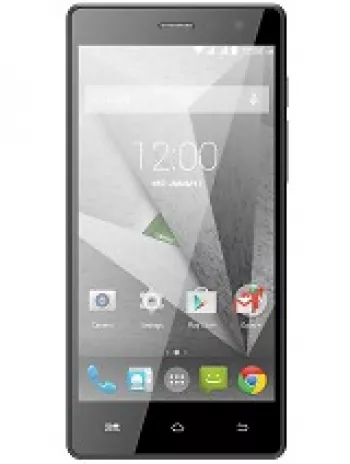
Overview of Gigabyte Keroro
The Gigabyte Keroro is a unique mobile device that was first announced in 2005. Its design and features reflect the technological landscape of the early 2000s, combining basic functionality with some advanced elements for its time. Despite being discontinued, it remains an interesting device to study due to its distinctive characteristics and innovation during its release period.
Network Capabilities
The Gigabyte Keroro operates on GSM technology, supporting 2G bands GSM 900, 1800, and 1900. This implies that the device was suitable for use in various regions, providing basic network connectivity for voice calls and text messaging. The GPRS Class 10 technology was used for internet connectivity, which, although slow by today's standards, was adequate for browsing simple web pages using the WAP 2.0 browser.
Launch and Market Status
The device was announced in 2005 and later reached the market as a discontinued product, meaning that it was not in production for very long. This short market lifespan can be attributed to the rapid evolution of mobile technology during the mid-2000s, which quickly saw more advanced devices replacing early models like the Gigabyte Keroro.
Body and Design
The Gigabyte Keroro had a compact design with dimensions of 96.7 x 54 x 25.6 mm and a weight of 106 grams, making it lightweight and portable. The device used a Mini-SIM card, which was the standard at the time. Its white color gave it a clean and simple look that was appealing to users who favored minimalistic aesthetics.
Display Features
The display of the Gigabyte Keroro was a 2.0-inch TFT screen capable of showing 2.6 million colors. The resolution stood at 176 x 220 pixels with a pixel density of approximately 141 ppi, offering sharpness and clarity necessary for basic phone operations. The screen-to-body ratio of ~24.1% indicates a higher bezel area, typical of many phones from that era.
Memory and Storage
Memory options included an external miniSD slot, allowing for expanded storage beyond the internal memory. The device could store up to 500 phonebook entries and maintain call records for 20 dialed, 20 received, and 20 missed calls. This was quite a practical feature for users needing to keep track of their communication history.
Camera Capabilities
The main camera of the Gigabyte Keroro was a single 1.3 MP shooter, which was standard for entry-level phones at the time. It could also record video, giving users the ability to capture moments in both photo and video form, albeit in lower quality compared to what is available in today's mobile devices.
Audio and Sound
The device supported downloadable polyphonic and MP3 ringtones, providing a level of customization for incoming calls and alerts. However, it lacked a loudspeaker and a 3.5mm headphone jack, which limited its audio output options when compared to more contemporary devices.
Communication and Connectivity
In terms of connectivity, the Gigabyte Keroro was quite limited. It did not include WLAN (Wi-Fi), Bluetooth, or positioning services, and it also lacked a radio. USB connectivity was not available, which constrained users to the mobile network for data exchange and made it challenging to connect to other peripherals.
Add-on Features and Functionality
The device came equipped with basic messaging options including SMS, EMS, and MMS, allowing for picture messages and simple text communications. The inclusion of the "Snoopy" game provided entertainment, though it did not support Java, which restricted its ability to run more complex applications or games prevalent at the time.
Battery Specifications
Power was supplied by a removable Li-Ion 700 mAh battery. While this may seem modest now, it provided a stand-by time of up to 240 hours and a talk time of approximately 5 hours, which were adequate figures during the period prior to the development of more energy-consuming applications and constant connectivity needs.
Conclusion
The Gigabyte Keroro was a noteworthy device of its time, representing the early years of mobile communication with a balance of features sufficient for its era. Despite its limited lifespan and subsequent discontinuation, it serves as a reminder of the strides made in mobile technology, from basic phones to the advanced smartphones we know today.
Key Features of Gigabyte Keroro
- Compact dimensions for easy handling (96.7 x 54 x 25.6 mm)
- Lightweight design at just 106 g
- TFT display with 2.6 million colors
- Supports GSM 900/1800/1900 bands
- 1.3 MP main camera with video capability
- Storage expandable via miniSD card slot
- SMS, EMS, and MMS messaging support
- Removable Li-Ion 700 mAh battery with up to 240 hours of standby time
- Play games like Snoopy
Disadvantages of Gigabyte Keroro
- Discontinued model, announced in 2005.
- No EDGE support; limited to GPRS Class 10.
- Small display size of 2.0 inches with low resolution (176 x 220 pixels).
- No front (selfie) camera available.
- No loudspeaker and absence of a 3.5mm headphone jack.
- Lack of modern connectivity options like WLAN, Bluetooth, GPS, and radio.
- No USB port for device connectivity and data transfer.
- Limited multimedia features with no support for Java applications.
- Very basic features compared to modern smartphones.
View Also
More Phones
All Rights Reserved +13665 Phones © Mobilawy 2025

























